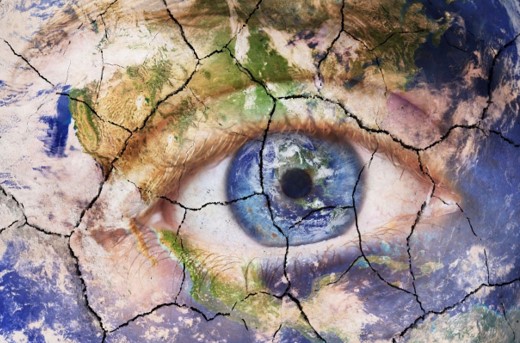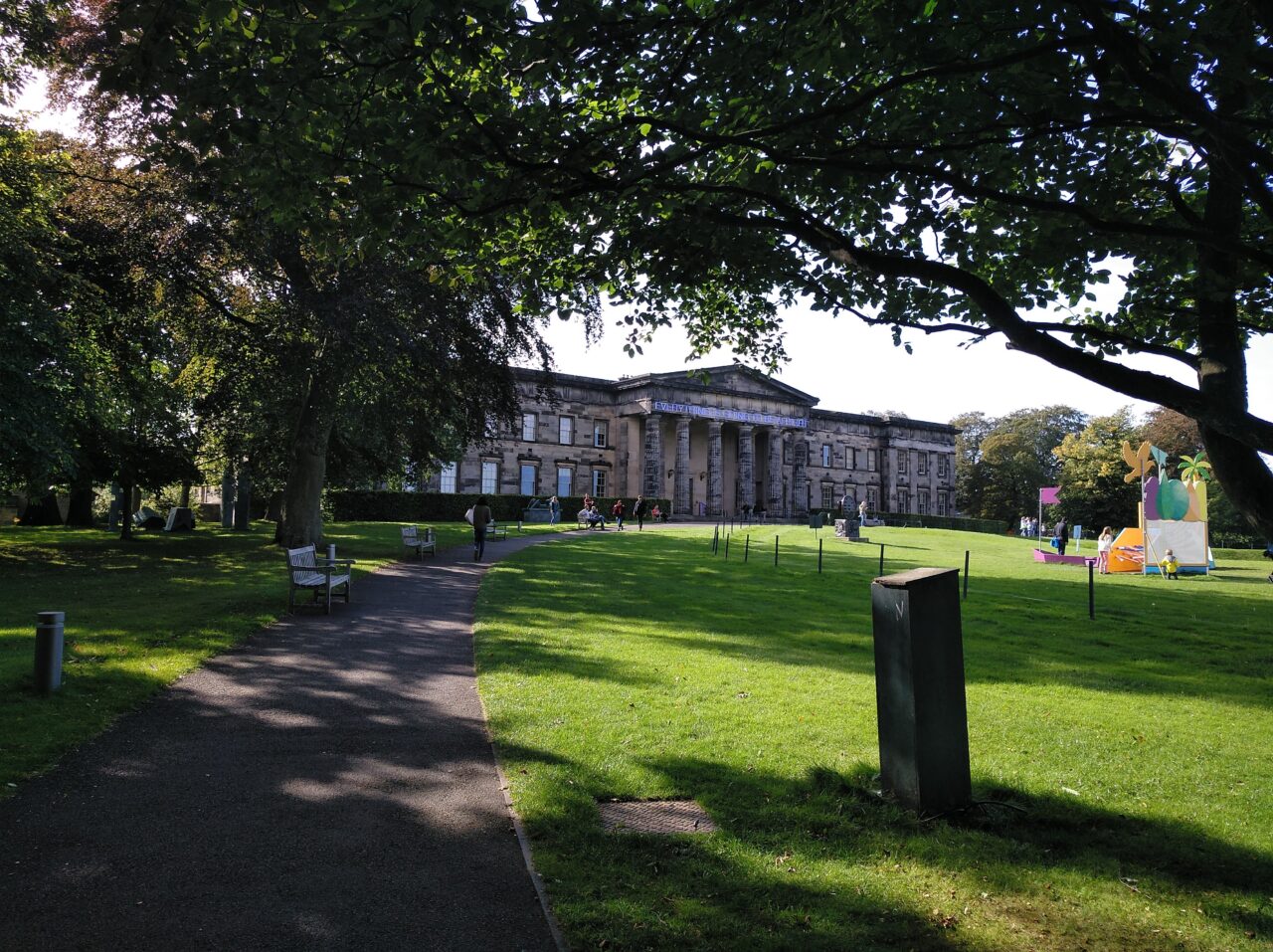Environmental Emergencies Across Media
Call for Papers
Linnæus University, Campus Kalmar, Sweden
16-18 March 2023 (from Thursday 11 am to Saturday 2 pm)
Transdisciplinary conference hosted by Linnæus University Centre for Intermedial and Multimodal Studies, Linnæus University, Sweden, and Kalmar Art Museum.

We live in a state of planetary environmental emergency. Scientific research as well as global news reports and local or Indigenous testimonies from all over the world witness an increase in alarming signs of current and future destruction. We are met with reports about so-called ‘natural’ weather disasters including megadroughts, extreme floods, and wildfires, as well as ever-growing waste mountains and landfills, gigantic plastic islands in acidified oceans, and species extinctions at an unprecedented pace. These unsustainable conditions produce eco- and climate- refugee streams around the world which in turn may evolve into political instabilities. These threats concern all aspects of human and non-human life, and the radical future changes they prompt range from ethics and existential choices including individual consumer choices to political institutions, collective investment strategies, ideological policy decisions, and business strategies.
Even though anxiety is widespread and for many people unescapable, the very basic premises of the current state remain utterly complex: the meaning of terms such as ‘climate’, ‘environment’, or ‘emergency’ are under continuous discussion in various academic disciplines, in policy fields and among activists: what happens when such terms and science constellations are brought together in a “climate emergency” or “environmental emergency”? These questions constitute an important focus point for this conference.
Another starting point is the fact that the immediate and urgent environmental emergencies per definition are mediated phenomena. This means that we are confronted with the crisis by way of what has been called ‘ecomedia’, the broad range of media types representing different aspects of the ecological crisis in highly divergent ways. These media types range from poetry to popular science, from demonstrations at COP-meetings to political reports and to books, journal articles, fine art, and tv-programmes.
Not only so-called ordinary people, scientists, and artists but also business leaders and national and international policymakers need to navigate often confusing media landscapes consisting of conventional mass-meditated news, fake(d) information on social media, and trustworthy references to scientific reports in popular science outlets. These media landscapes furthermore compete with or are supplemented with information conveyed in literature, film, or art exhibitions. Common for all these media types is that they more or less truthfully give access to crucial aspects of the world — and that we tend to consume such diverging knowledge more or less simultaneously, and at the same platforms. Consequently, a media studies approach in general, as well as a specific intermediality approach, is needed to help better understand and even untangle some of the knots of the ongoing information and representation wars.
Ecocriticism, as a specific field under the broader umbrella of environmental humanities, has for decades offered important insights into the reasons for and the problems relating to representations of the ecological emergency. Until recently, ecocriticism focused primarily on literary material; rarely have questions on different media forms and communicative types been emphasised. One of the tasks for this conference is, therefore, to rejuvenate ecocriticism and the environmental humanities with a cross-medial approach: an intermedial ecocritical tactic needs to be developed. An intermedial point of view, drawing on disciplines specializing in both understanding the a priori mixed media character of all communication — and in registering and investigating transports of content from one medial constellation to another — offers a systemic understanding of the complex role all media play in communicating the environmental crisis.
Finally, we need to ask what it means for us to orient ourselves and to act ethically, culturally, politically and cognitively in the near-to unfathomable complexity of the environmental emergency. There is a risk of being overwhelmed, numbed and pacified by the sheer enormity of the situation — which is doubly problematic in our current situation that needs individual and collective agency, political mobilisation, and radical re-evaluations of economic models. What answers are needed to face the current emergency? And crucially: how can we create spaces for action in relation to temporalities and scales that are difficult to grasp? What are the interrelations between ecological emergency, heterogeneous mediations, and individual and collective agency?
Similar to two earlier conferences, “Multispecies Storytelling in Intermedial Practices”, Växjö January 2019, and “The Anthropocene Condition Across Media and the Arts”, Cluj/Romania August 2019, this conference recognizes that the arts — including work by artists, activists, writers, performers, and artistic researchers — has a crucial role to play in the current environmental emergency. Our argument is that in the same way that citizens and decision makers need to calibrate their acts in a complex epistemological situation, artistic endeavours, likewise, are faced with huge representational and epistemological challenges. Therefore, we invite not only academics but also artistic contributions, artistic research presentations, and contributors who identify as activist researchers in order to open up a full debate on these challenges.
The aim of this conference, thus, is to move beyond the conventional targets of a humanities ecocritical conference — regularly focusing upon the problems of representing the environmental crisis – by adding activist and speculative fields of articulation and collaboration in transdisciplinary terrains. The conference, consequently, inaugurates a collaboration between Centre for Intermedial and Multimodal Studies, at Linnæus University and Kalmar Art Museum.
Keynote presenters:
- J. Demos, Professor, and Patricia and Rowland Rebele Endowed Chair in Art History and Visual Culture, Director, Center for Creative Ecologies and Director of Graduate Studies, UC Santa Cruz (US)
- Ursula K. Heise, Professor and Chair, Department of English and the Institute of the Environment and Sustainability, UCLA (US)
- Madame Nielsen, Performer, Musician, Actor and Writer (DK)
- Adventura Botanica. Dancer: Elisabeth Christine Holth, Choreography: Odd Johan Fritzøe, Music and sound design: SPUNK
Additional keynote presenters to be announced
We welcome papers, as well as other forms of presentations, including performances, screenings, readings, and other forms of artistic presentations and interventions dealing with questions relating to the emergency of the mediated environmental crisis. We encourage transdisciplinary methods and experimental formats, and we especially aspire to explore topics or approaches such as (but not restricted to):
- Intermedial ecocriticism
- Ecomedia-studies
- Ecocriticism
- (Eco)narratology across media
- Speculative and “weird” fictions
- Ecofeminisms
- Ecojustice
- Post- / Decolonial histories
- Parascientific histories and methodologies
- Queer ecologies
- Ecopoet(h)ics
- Indigenous semiotics
- Embodied linguistics
- Biosemiotics
- Intersections between environmental philosophies and disability studies
- Curating multispecies wor(l)ds
- Common survival
- Environmental communication
- Extinction studies
- Critical posthumanism
- New materialist approaches
Official language of the conference is English. Each paper/presentation will be allotted 20 minutes and 10 minutes for discussion. Proposals for both individual papers and preconfigured sessions of two or more papers are welcome. There will be a strict but also openminded selection of papers. As our goal is to attract participants from a broad area of research, papers/presentations and sessions with a marked interdisciplinary approach will be prioritized. Artistic researchers or artists are strongly encouraged to reply to this CFP with suggestions of presentations in other media than the conventional conference paper.
Please send your abstract (max 300 words, including a title and a short bio) to ecoemergency@lnu.se.
A conference website will provide you with more information and a link to the Linnæus University Centre for Intermedial and Multimodal Studies.
The conference fee is 150€ (60€ for students or independent scholars and artists) which will cover lunches, coffee and fruit, a dinner reception and a a conference dinner.
Timetable:
– Deadline for abstracts: October 1, 2022
– Notification of acceptance: October 15, 2022
– Deadline for registration and conference fee: 1 December, 2022
– Publication of preliminary conference program: February 1, 2023
The conference committee, consisting of (in alphabetical order):
Jørgen Bruhn, PhD, Professor of Comparative Literature, Director of Linnæus University Centre for Intermedial and Multimodal Studies
Matilda Davidsson, PhD-Candidate
Heidi Hart, PhD, Independent Scholar, Curator, Artist
Niklas Salmose, PhD, Professor of English Literature
Ola Ståhl, PhD, Artist, Senior Lecturer in Design

***
If you would like to advertise your intermedial event, call for papers or call for contributions, you’re welcome to contact us at inma.sanchez-garcia@ed.ac.uk
